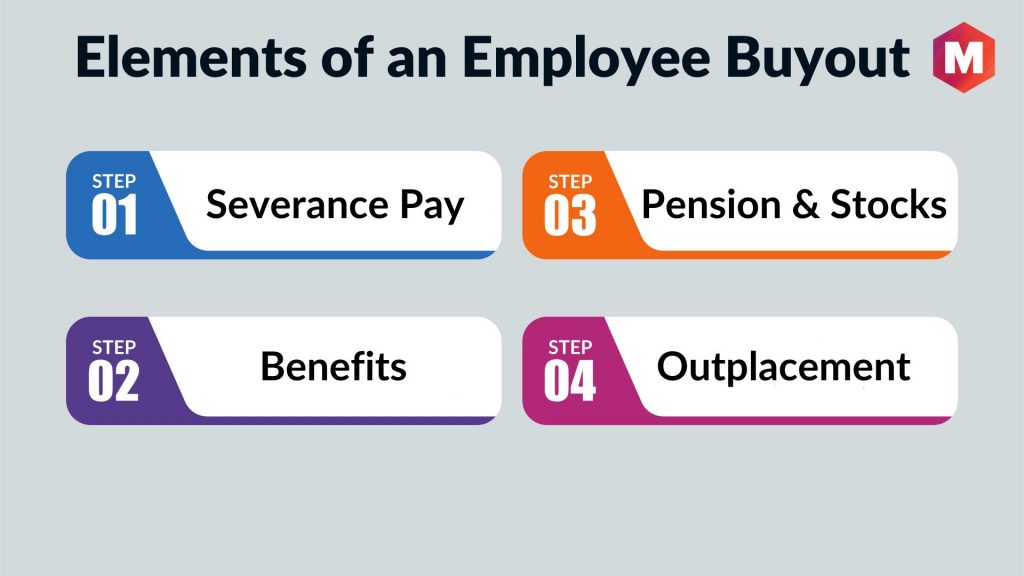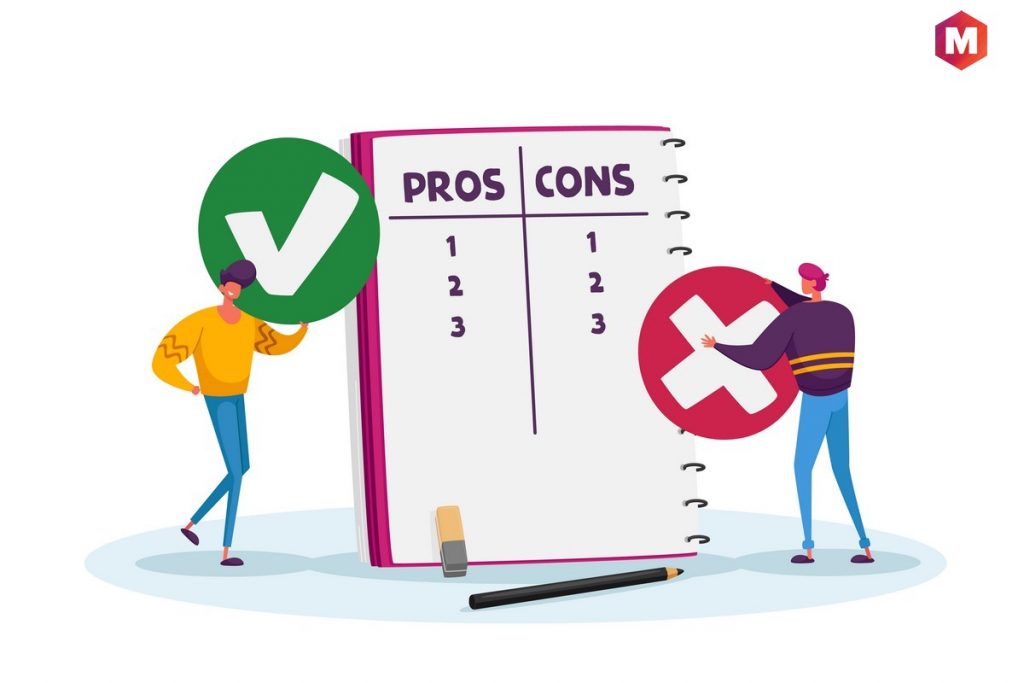Table of Contents
What Is an Employee Buyout?
An employee buyout (EBO) is when a company offers its employees financial incentives to leave the company. This is often done to reduce the size of the workforce or to get rid of high-paid employees. Employee buyouts can be voluntary or involuntary.
Voluntary employee buyouts are when employees are given the option to leave the company in exchange for a severance package. This package may include things like a lump sum of money, extended health care benefits, and outplacement assistance.
Involuntary employee buyouts are when employees are asked to leave the company against their will. In these cases, employees may be given a severance package, but it is typically not as generous as a voluntary buyout.
Employee buyouts can be a good way for companies to reduce their workforce without having to lay off employees. However, they can also be disruptive to the workplace and cause morale problems.
Employee buyout as a voluntary severance package offered by an employer to its employees. It is usually in the form of a lump sum payment and is often used as a tool to encourage early retirement.
Meaning
Employee buyout occurs when an offer is made to employees to leave the company voluntarily in return for a severance package. This usually happens when the company is facing financial difficulties and needs to reduce its workforce. The buyout offer may be made by the company’s management or by another company that is interested in buying the business. Employee buyouts can be a good way to avoid layoffs, but they can also be a way for companies to get rid of older employees who are nearing retirement age.
When an employee buyout is offered, the company will usually give the employees a certain number of weeks pay as severance. The employees may also be given the option to stay with the company for a certain period and receive their full benefits. If the employees accept the buyout offer, they will usually have to sign a contract that gives the company the right to terminate their employment at any time. Employee buyout payment can be a good way for employees to receive severance pay and social security benefits.
Possible Elements of an Employee Buyout
Some of the things that can be included in an employee buyout are
1. Severance Pay
This is a payment that is made to an employee when they leave a company. It is meant to help them with the transition to a new job.
2. Benefits
Some companies will ofPlans health care benefits as part of an employee buyout package. This can be helpful for employees who have preexisting medical conditions or who are older and closer to retirement.
3. Pension and Stocks
Some companies will offer to buy out an employee’s pension or stock options as part of an employee buyout package. This can be a good way for employees to get some financial security during their transition to a new job.
4. Outplacement
Some companies will offer outplacement services as part of an employee buyout package. This can be helpful for employees who need assistance with finding a new job.
Forms of Employee Buyouts
- Voluntary Severance: Voluntary severance is when an employee chooses to leave the company in exchange for a severance package. This package might include one-time payment, extended health care benefits, and help with finding a new job.
- Corporate Restructuring: Corporate restructuring is when a company changes its structure in order to reduce costs. This might involve downsizing, layoffs, or employee buyouts. Employee buyouts are often used as a way to avoid laying off employees.
Pros and Cons of Employee Buyouts
There are both pros and cons to employee buyouts. Some of the pros include
1. Cost Savings
Employee buyouts can be a cost-effective way for companies to reduce their workforce. This is because they can avoid the costs associated with layoffs, such as severance pay and unemployment benefits.
2. Avoid Disruptions
Employee buyouts can also help to avoid disruptions in the workplace. This is because they allow employees to leave voluntarily, rather than being forced out through a layoff.
Some of the cons of employee buyouts include-
1. Bad Employee Relations
Employee buyouts can damage employee relations. This is because employees who are not offered a buyout may feel like they are being treated unfairly.
2. Financial Insecurity
Employee buyouts can also create financial insecurity for employees. This is because they often involve giving up benefits and job security in exchange for a severance package.
Why Offer Employee Buyouts?
Some of the reasons why companies offer employee buyouts include-
- One of the main reasons why companies offer employee buyouts is to save money.
- Employee buyouts can be a cost-effective way to reduce the workforce.
- This method of reducing the labor force is more humane and ethical.
- Employee buyouts are voluntary methods for employees to exit a company, as opposed to being dismissed due to a layoff.
- Employee buyouts can help to promote continuity in the workplace.
When Should Employee Buyouts Be Offered?
Employee buyouts are typically offered during corporate restructuring. This is because they can be a cost-effective way to reduce the workforce.
Employee buyouts might also be offered during periods of financial difficulties, such as when a company is facing bankruptcy.
How to review a buyout package?
When you are considering whether or not to accept a buyout package, there are a few things that you should keep in mind such as-
- What is the severance amount or package: This will be the largest financial consideration in whether or not to accept a buyout. Employee buyouts typically offer a few months to a year’s worth of salary as severance. It is important to compare this amount to your current salary and living expenses to determine if it is enough to cover your costs.
- How near or far you are from retirement: If you are close to retirement, you may want to consider accepting a buyout. This is because you will likely be able to find another job before your severance runs out. However, if you are still early in your career, you may want to think twice about accepting a buyout. This is because it may be more difficult to find another job that offers the same salary and benefits.
- How it will affect your living expenses: You will also need to consider your living expenses when determining whether or not to accept a buyout. This includes things like rent, food, and transportation costs. Make sure that you have a realistic estimate of your living expenses before making a decision.
- What are your future plans: What are your plans? Do you plan on finding another job right away? Or do you want to take some time off? These factors can help you decide whether or not a buyout is right for you. You should also consider your career goals and whether or not a buyout will help you achieve them.
- What are other forms of compensation: In some cases, companies will offer additional compensation beyond the severance package. This might include extended health care benefits or help with finding a new job. Be sure to consider any additional compensation when making your decision.
- Lump-sum vs. installment payments: Employee buyouts typically offer a lump-sum payment. This means that you will receive all of the money upfront. However, some companies may offer installment payments instead. This can be helpful if you are worried about having enough money to cover your living expenses.
- What will be the consequence of turning down the buyout: It is important to consider what will happen if you turn down the buyout. Will you be laid off? If so, you may not receive any severance pay or unemployment benefits. Make sure you understand the consequences before making a decision.
- Regulations and requirements: There are some regulations and requirements that companies must follow when offering employee buyouts. For example, the Employee Retirement Income Security Act (ERISA) requires that companies provide certain protections for employees who are offered a buyout. Be sure to familiarize yourself with the regulations before making a decision.
- Unemployment insurance eligibility: If you accept a buyout, you may be eligible for unemployment insurance. This can be helpful if you are having trouble finding another job. Be sure to check with your state’s unemployment office to see if you qualify.
- Negotiating the buyout terms to ensure a smooth transition into another occupation: If you decide to accept a buyout, you may want to negotiate the terms of the buyout. This can help you ensure a smooth transition into another job. Be sure to consider your future plans when negotiating the terms of the buyout.
- Liability Release: In some cases, companies will require employees to sign a liability release as part of the buyout agreement. This means that you will not be able to sue the company for any claims that you may have. Be sure to read the liability release carefully before signing it.
- Non-compete clauses: Some companies will also require employees to sign a non-compete clause as part of the buyout agreement. This means that you will not be able to work for a competitor of the company for a certain period. Be sure to read the non-compete clause carefully before signing it.
- Consulting an attorney: It is always a good idea to consult an attorney before making any decisions about a buyout. An attorney can help you understand your rights and options.
- Speaking with a financial advisor: You should also speak with a financial advisor to get advice on whether or not a buyout is right for you. A financial advisor can help you understand the financial implications of a buyout and help you make a decision.
- Getting advice from friends or family: You may also want to get advice from friends or family members who have been through a buyout. They can offer valuable insights that you may not have considered.
Employee Buyouts vs Employee Layoffs
There are some key differences between employee buyouts and employee layoffs. Employee buyouts are typically voluntary, while employee layoffs are involuntary. Employee buyouts usually offer severance pay and other forms of compensation, while employee layoffs do not.
Employee buyouts typically require employees to sign a liability release, while employee layoffs do not. Finally, employee buyouts may have tax implications, while employee layoffs do not. Be sure to consider these differences when making a decision about whether or not to accept a buyout.
Employee Buyout vs Leveraged Buyout vs Management Buyout
An employee buyout is when a company offers its employees severance pay in return for them leaving the company. A leveraged buyout is when an existing business is bought by another company using debt financing.
In a management buyout, the management team of a company buys out the existing shareholders to take the company private. This can be done for a variety of reasons such as increasing profitability or making the company more nimble. Employee buyouts are similar, but instead of the management team acquiring the company, it is employees who do so.
Conclusion
Employee buyouts can be beneficial for both the employer and the employee. However, they need to be structured carefully to protect both parties. Employee buyouts can help to delay layoffs. When done correctly, employee buyouts can be a win-win for both sides.
If you’re considering an employee buyout, be sure to get professional advice to ensure that it’s the right move for your business. Employee buyouts can be complex, and you’ll want to make sure that you understand all of the implications before proceeding.
What do you think? Have you ever been involved in an employee buyout? Share your story in the comments.
Liked this post? Check out the complete series on Human resources

